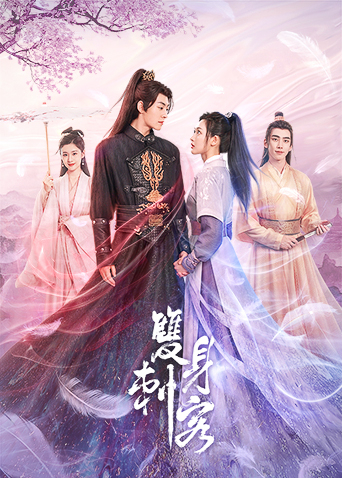1944年的冲绳岛之役,视频是太平洋战争中最血腥、视频最惨烈的战役。本片描述这场战役的始末经过。片中讲二战末期日本军队及岛上人民如何奋勇抵抗“外敌”,夸大日本军队的“正义、勇敢、不畏牺牲的大无畏气概”。这部影片完全站在日本的立场上看待冲绳岛战役,是片面的!
1944年的冲绳岛之役,视频是太平洋战争中最血腥、视频最惨烈的战役。本片描述这场战役的始末经过。片中讲二战末期日本军队及岛上人民如何奋勇抵抗“外敌”,夸大日本军队的“正义、勇敢、不畏牺牲的大无畏气概”。这部影片完全站在日本的立场上看待冲绳岛战役,是片面的!
回复 :1943年2月,残酷的斯大林格勒战役呈现出胶着态势。在慕尼黑,地下反战组织白玫瑰的成员们正在加紧印发传单,其中索菲(Julia Jentsch 饰)与汉斯姐弟两人为响应不久前女学生们的行动,计划将传单散发到大学校园内,两人冒着极大风险进入学校,在散发完毕时不幸被捕。盖世太保摩尔负责审讯索菲,姐弟俩按照事先商定的串词,拒绝承认自己与反战传单有关,并几乎可以无罪释放,但纳粹的搜查发现了新的线索,形势急转直下,索菲开始将罪责揽到自己身上以掩护同伴们,经过反复的交锋,摩尔开始对这位坚定的女青年产生了些许理解和同情,但等待索菲的,终究是一场封闭的不公平审判……本片根据真实故事改编,获2005年柏林电影节最佳导演奖等多项褒奖。
回复 :影片讲述19岁的大卫(霍夫曼饰)梦想成为世界最顶级舞台上的钢琴演奏家。在他的家乡,他的天赋非常出众。但作为一个音乐学院的学生,他很快意识到他仅仅只是天才中的一个。他的同学沃尔特(努斯鲍姆饰)是他最大的竞争对手,而这种竞争也蔓延到了感情上。
回复 :It has been said that most great twentieth century novels include scenes in a hotel, a symptom of the vast uprooting that has occurred in the last century: James Ivory begins Quartet with a montage of the hotels of Montparnasse, a quiet prelude before our introduction to the violently lost souls who inhabit them.Adapted from the 1928 autobiographical novel by Jean Rhys, Quartet is the story of a love quadrangle between a complicated young West Indian woman named Marya (played by Isabelle Adjani), her husband Stefan (Anthony Higgins), a manipulative English art patron named Heidler (Alan Bates), and his painter wife Lois (Maggie Smith). The film is set in the Golden Age of Paris, Hemingway's "moveable feast" of cafe culture and extravagant nightlife, glitter and literati: yet underneath is the outline of something sinister beneath the polished brasses and brasseries.When Marya's husband is put in a Paris prison on charges of selling stolen art works, she is left indigent and is taken in by Heidler and his wife: the predatory Englishman (whose character Rhys bases on the novelist Ford Madox Ford) is quick to take advantage of the new living arrangement, and Marya finds herself in a stranglehold between husband and wife. Lovers alternately gravitate toward and are repelled by each other, now professing their love, now confessing their brutal indifference -- all the while keeping up appearances. The film explores the vast territory between the "nice" and the "good," between outward refinement and inner darkness: after one violent episode, Lois asks Marya not to speak of it to the Paris crowd. "Is that all you're worried about?" demands an outraged Marya. "Yes," Lois replies with icy candor, "as a matter of fact."Adjani won the Best Actress award at Cannes for her performances in Quartet: her Marya is a volatile compound of French schoolgirl and scorned mistress, veering between tremulous joy and hysterical outburst. Smith shines in one of her most memorable roles: she imbues Lois with a Katherine-of-Aragon impotent rage, as humiliated as she is powerless in the face of her husband's choices. Her interactions with Bates are scenes from a marriage that has moved from disillusionment to pale acceptance.Ruth Prawer Jhabvala and James Ivory's screenplay uses Rhys's novel as a foundation from which it constructs a world that is both true to the novel and distinctive in its own right, painting a society that has lost its inhibitions and inadvertently lost its soul. We are taken to mirrored cafes, then move through the looking glass: Marya, in one scene, is offered a job as a model and then finds herself in a sadomasochistic pornographer's studio. The film, as photographed by Pierre Lhomme, creates thoroughly cinematic moments that Rhy's novel could not have attempted: in one of the Ivory's most memorable scenes, a black American chanteuse (extraordinarily played by Armelia McQueen) entertains Parisian patrons with a big and brassy jazz song, neither subtle nor elegant. Ivory keeps the camera on the singer's act: there is something in her unguarded smile that makes the danger beneath Montparnasse manners seem more acute.


